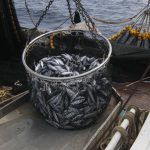The four Northwest tribes have agreed to spend $900 million over the next decade on improving conditions for endangered salmon, but leave intact hydroelectric dams in the Columbia River Basin that environmentalists say kill fish. This mark the end of years long legal battles between the Bush administration and the four Northwest tribes. According to them the settlement would not affect a fifth tribe that is party to a lawsuit or environmental groups that vowed to press on in their efforts to breach four dams on the Lower Snake River.
Federal officers called the settlement a landmark in the dispute over balancing tribal and commercial fishing rights, protection for threatened salmon and power demands from the region’s network of hydroelectric dams. Environmentalists on the other hand did not contend with the progress of the agreement. According to them the deal fell far short of what is needed to recover threatened salmon, an icon of the Northwest that is protected by the Endangered Species Act and costs the government billions of dollars to protect.
Oregon Gov. Ted Kulongoski called the agreement premature while Washington Gov. Chris Gregoire called the deal a “positive development” and said federal and tribal leaders should be commended for their efforts. She added that working collaboratively can best protect and enhance the salmon fishery. Steve Wright, administrator of the Bonneville Power Administration, told that the settlement benefits salmon and Northwest ratepayers alike.
As per the agreement federal agencies would expand tribal efforts to protect endangered and threatened fish in the Columbia River Basin, spending up to $900 million over 10 years for hatchery improvements, stream restoration work, screens to protect fish and additional spillway weirs on some of the dams.








